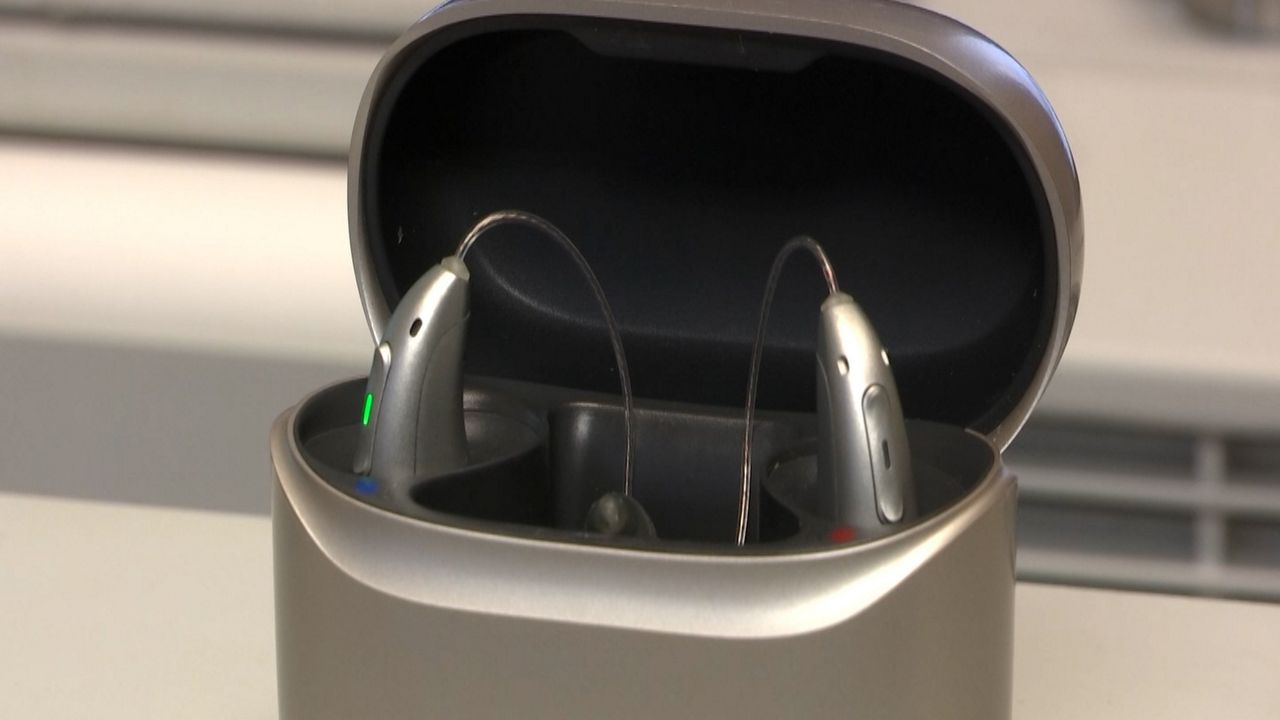Danielle Ulfand-Westfield isn’t new to float therapy — she’s done about 40 floats since 2019.
"I started doing it as I normally take baths as my every day, so it just made sense to try this out," Ulfand-Westfield said.
What You Need To Know
- Float therapy uses six parts magnesium sulfate and one part water to create buoyancy
- Those who do it say they find themselves with better skin and improved anxiety, sleep, inflammation and decreased pain
When she came to Ascend for her first float, she say she immediately felt relaxed from the water and the music and actually fell asleep.
"And I noticed that when I got out, my skin was softer and that I just had a beautiful day," Ulfand-Westfield said. "I just was relaxed. Calm. I slept better that night. I couldn't explain it."
Founder Katrena Lanzetta is a registered nurse and calls magnesium "the miracle liquid."
"With six parts salt, maybe we say salt, but it's magnesium sulfate, better known as Epsom salt, and one part water. So it's a 1 to 6 ratio of water to salt. So you're completely buoyant. You're right in the room. It's 9 by 5 and 10 inches of that liquid," Lanzetta said.
Lanzetta says the combination of floating with no lights and no sound can feel like nothingness, like you’re floating on a cloud. She says the benefits of magnesium include improved sleep, stress, inflammation and decreased pain.
"When someone comes out and says, 'I feel like the Tin Man just got oil,' my hands haven't moved like this and you're not in hot water. Is it an oil? And it is just that magnesium, the way it enters, and people may stretch in the room, so that like if you feel a tense stretch or discomfort, you can actually exceed that range of motion while you're in that water floating with less pain and decreased," Lanzetta said.
She says there's also been studies that show float therapy helps with anxiety. Instead of a float pod, people can use tanks that are more open. That’s what Ulfand-Westfield started with, because she can get claustrophobic.
"It was immediately no to the pod until finding out that you could leave the door open. So that could help out, and I feel like now that I am a seasoned pro, I could close the door because I'm able to relax a lot more easier," she said.
She recommends that alternative to anyone who feels the same way about small spaces as her. She says she can feel the benefits of a float for days after.
"If you are on a wellness journey and you're tying all your nutrition and your exercise and your stress management together, I feel like that could catapult us," Ulfand-Westfield said. "So it depends on your lifestyle and what you have going on for the benefits and longevity of it."
Lanzetta hopes research on float therapy and its benefits continues.










